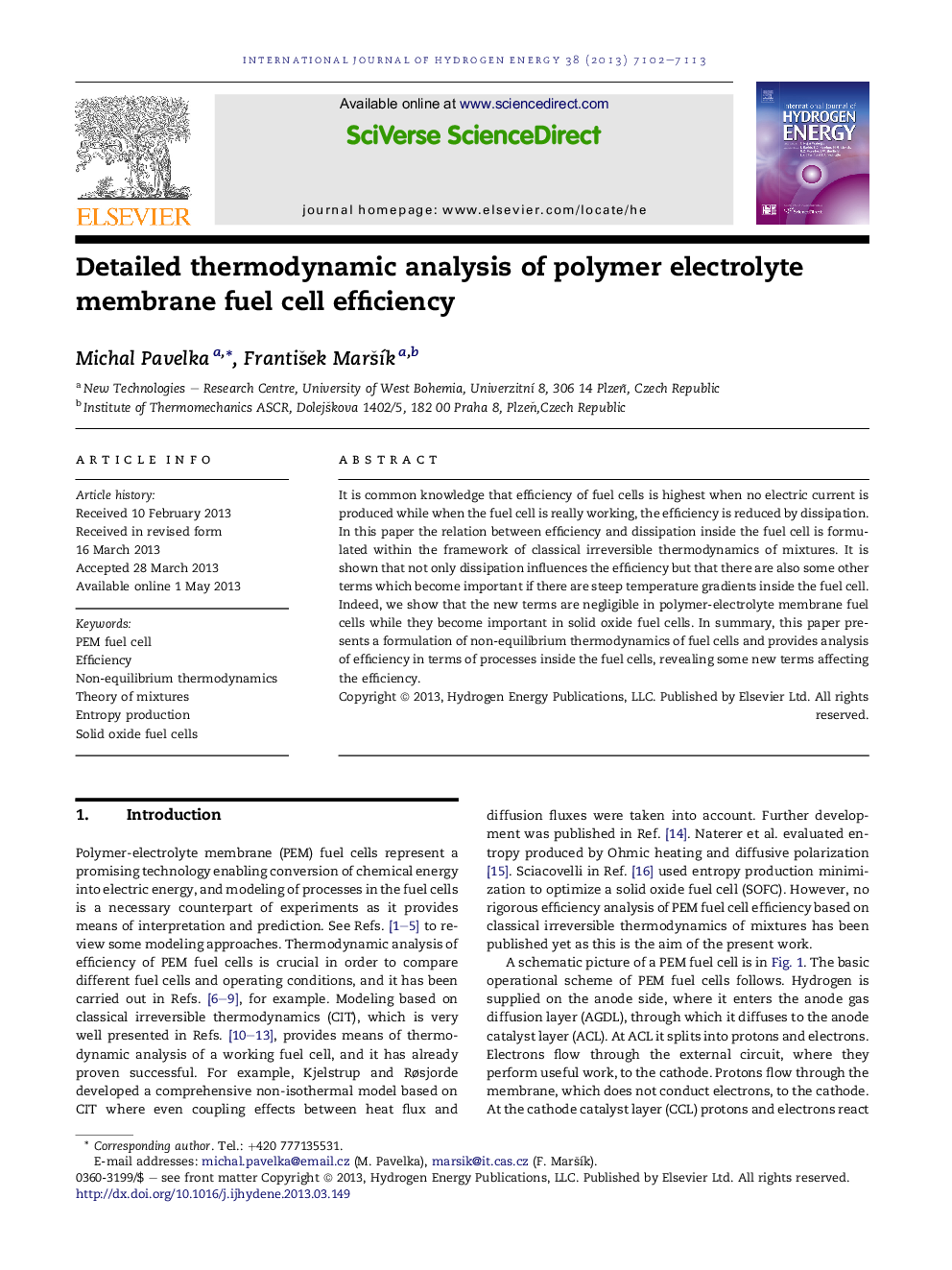| Article ID | Journal | Published Year | Pages | File Type |
|---|---|---|---|---|
| 1277494 | International Journal of Hydrogen Energy | 2013 | 12 Pages |
•Processes in PEM fuel cells are described using a non-equilibrium mixture theory.•Efficiency is evaluated in terms of processes inside the fuel cell.•It turns out that efficiency is affected not only by dissipation.•Entropy production in various parts of a PEM fuel cell is discussed.
It is common knowledge that efficiency of fuel cells is highest when no electric current is produced while when the fuel cell is really working, the efficiency is reduced by dissipation. In this paper the relation between efficiency and dissipation inside the fuel cell is formulated within the framework of classical irreversible thermodynamics of mixtures. It is shown that not only dissipation influences the efficiency but that there are also some other terms which become important if there are steep temperature gradients inside the fuel cell. Indeed, we show that the new terms are negligible in polymer-electrolyte membrane fuel cells while they become important in solid oxide fuel cells. In summary, this paper presents a formulation of non-equilibrium thermodynamics of fuel cells and provides analysis of efficiency in terms of processes inside the fuel cells, revealing some new terms affecting the efficiency.
